Tent Camping 101: Tips for Beginners | Tent Camping Tips
Last Updated on April 12, 2021 by Jody
Family outdoor adventure is something I love, but I have to admit that I was never really itching to sleep in a tent. It didn’t take me long to realize that I better re-embrace the tent camping tips of my youth if my family was going to experience wilderness areas and get away from the crowds.
When I became a parent I realized that we were missing out on things if we couldn’t go tent camping and extend our ability have better experiences than day tripping allowed. I didn’t relish the thought of sleeping on the hard ground, but my desire to see and experience more motivated me to grab a tent and give it a try.
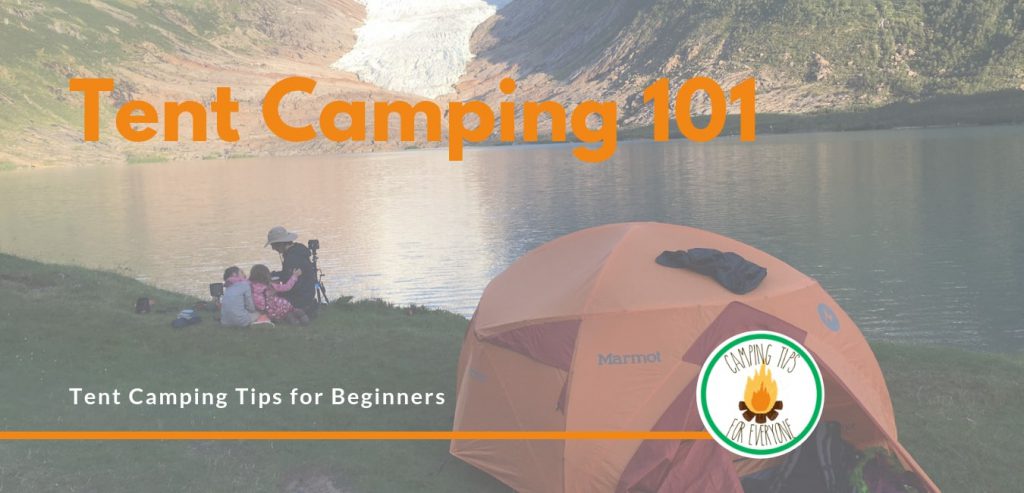
Looking for unique camping spots?
Check Tentrr to connect with private landowners.
Or try Hipcamp for campsites on ranches, vineyards, and public lands.
Tent Camping Tips for Beginners
Heading out for your first tent camping experience can be daunting, especially if you look at all the articles out there online. There are a lot of approaches, but in my opinion you don’t need as much than you may think to get started. Lets go through some tent camping tips.
Tent Camping Checklist
- Tent
- Mattress (air mattress or Thermarest)
- Sleeping bags / Bedding
- Camp kitchen (cook stove, cooking utensils)
- Flashlights
- First Aid kit
- Clothing for the weather
- An ax for breaking up dead wood
- Matches or flint
Tips for Buying a Camping Tent
We borrowed a neighbor’s old tent for our first camping experience. Borrowing a tent is a great way to try camping and save money.
When you are ready to buy a tent walking into a sporting store to look at camping tents can be overwhelming, but remember that most new tents will do a good job of keeping you dry.
The costs will rise as the materials and construction become lighter and designs become easier for setup and more sturdy in high winds.
Knowing what kind of camping you plan on doing can help you make those decisions as the needs of the casual camper are certainly not the needs of someone hiking in 10km before setting up camp.
If you are not planning on backpack camping, lightweight and size doesn’t matter. I would go with a big camping tent when so you have more room for your gear and more space for each camper. Our borrowed tent on our first trip was not light, but it got the job done.
When we knew backcountry camping was for us we decided to invest in a better tent.
Buy a tent you can afford, but remember that the last thing you want to discover is that your tent is not exactly waterproof during a 3am downpour.
If you are new to camping it might be a great idea to rent your tent from an outdoor retailer or outfitter; they are great resources for tent camping tips. This is a great option to try out gear and make sure you enjoy tent camping before making the investment.
In preparation for a backpacking trip in Norway, we chose a tent that was a blend of lighter weight, 4 person size, and highly rated waterproofing. It wasn’t the most expensive and also not the lightest, but we knew we could split the weight over 4 backpacks, making it good for family backpacking.
Mattresses for Camping
The kind of mattress you choose is a matter of your needed comfort level vs easy packing; from a simple sleeping pad to Thermarest and air mattress.
Foam pads and Thermarest work well in a backpack but if you aren’t camping far from your vehicle, I would suggest you use a thick king sized air mattress. Believe me, you will sleep better.
Sleeping Bags for Camping
The first time we went camping we took the bedding from our own beds and extra blankets, but after we knew tent camping was for us we decided to buy good sleeping bags.
Sleeping bags come in different styles; rectangular, semi rectangular, or mummy bag. Mummy bags retain heat best, but people can find them restrictive at first.
Sleeping bags use different insulating materials; goose down and synthetic. Synthetic is generally less expensive but heavier and harder to compress. Down is lightweight and easy to compress but often more expensive and loses insulating value when wet.

Camping Packing Tips
Packing is completely dependent on what kind of camping you are doing.
If you are backpacking it is all about being light.
More casual camping in a marked site near your vehicle is easier on the back, but you still need to be organized.
Separating gear in plastic bins is a great way to keep organized.
A cooler full of ice is a must for all your fresh food items.
Tent Camping Safety Tips
When you are tent camping it is important to pay attention to safety- this includes both hygiene and safe storage of food.
One important tent camping safety tip is to always make sure you keep your camp site tidy and cleared of any food items which attracts animals.
Your tent should be a no food EVER zone. This even includes snacks, toothbrush, and toothpaste, which all can attract animals.
Pack all food items in the car or hang it in a tree if you are backcountry camping.
Be sure to wash your hands so you don’t get sick from bacteria and keep any perishable food on ice.
Read More About Camping Safety

What you don’t think you need when camping:
A good tarp can save the day as it can be used as extra shelter in rain or sun. Wet wipes make it easier to keep yourself clean when out tent camping. Headlamps are perfect so you can work with you hands. I like to bring extra plastic bags for trash, dirty clothes or waterproofing.
See the things you should NEVER camp without
What you think you need but don’t:
There will probably be a picnic table at your camp site so you don’t need extra chairs and tables.
We stopped packing pillows on our second trip.
Camping games or board games. There will be plenty to keep you occupied without adding to your load.
Embrace the sounds of nature and leave the Bluetooth speakers home (but do consider ear plugs if you are a light sleeper!)
Preparing Your Tent Camping Kitchen
On my first camping trip as an adult I spent 3 days organizing the food. Today, I go much simpler and invested in a compact camp kit with bowls, cups, pot, cutlery and room for my Primus stove and fuel.
I dropped the gourmet and keep it simple and hearty. When camping in a campground with facilities you can make your menus a bit more complex.
Here is a 3 day camping menu recommendation:
Breakfast:
Egg, bacon and potatoes in a skillet.
Pancakes with blueberries
Oatmeal with jam.
Lunches:
Soup and Sandwiches
Macaroni and cheese
Pasta bolognese
Dinners:
Foil dinner – chicken, peppers, potatoes and onion.
Sausages, roasted potatoes, roasted vegetables
Steak with mashed potatoes and salad.
Snacks:
Breads, crackers, hard cheese, oranges, apples and bananas
Easy foil dinner:
4 chicken breast
4 potatoes sliced thin
1 onion cut in small pieces
1 red pepper sliced thin.
Cut up vegetables add you protein and wrap in foil with salt and pepper. You can prepare them at home and cook them on the campfire coals.
Important Tent Camping Tips!
- Test your gear and know it works before you go camping.
- Set up the tent and be sure it is in good condition.
- Watch the weather forecast and prepare for the weather.
- Going backcountry camping? Let someone know where you are going and when you are returning.
Tent Camping Essentials
Campsite gear
• Tent, poles and stakes
• Mattress
• Bedding (pillows and sleeping bags )
• Tarp
• Flashlights
• Axe, matches
• Extra rope
Camp kitchen
• Camp stove
• Pot, pan, bowls, plates, cutlery, cups, kitchen knives, chopping board, aluminum foil.
• Salt, pepper, fry oil, canned foods, ultra pasteurized milk, pasta, pancake mix.
• Cooler for your fresh food with plenty of ice.
• Biodegradable dish soap, dish tub and bucket for carrying water
Clothing
• Water and windproof clothing
• Underwear and socks
• Swimsuits
• Mid layers for warmth – sweaters or fleece
• Hiking boots/rubber boots
• Gloves and hats
Personal gear
• Toothbrushes, toothpaste, biodegrade soap
• Sunscreen
• Insect repellent
• First Aid kit
Other things
• Camera
• Battery bank charger for your phone
• Maps of the area
Save or Share this Article
 | 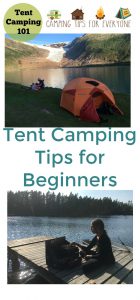 |
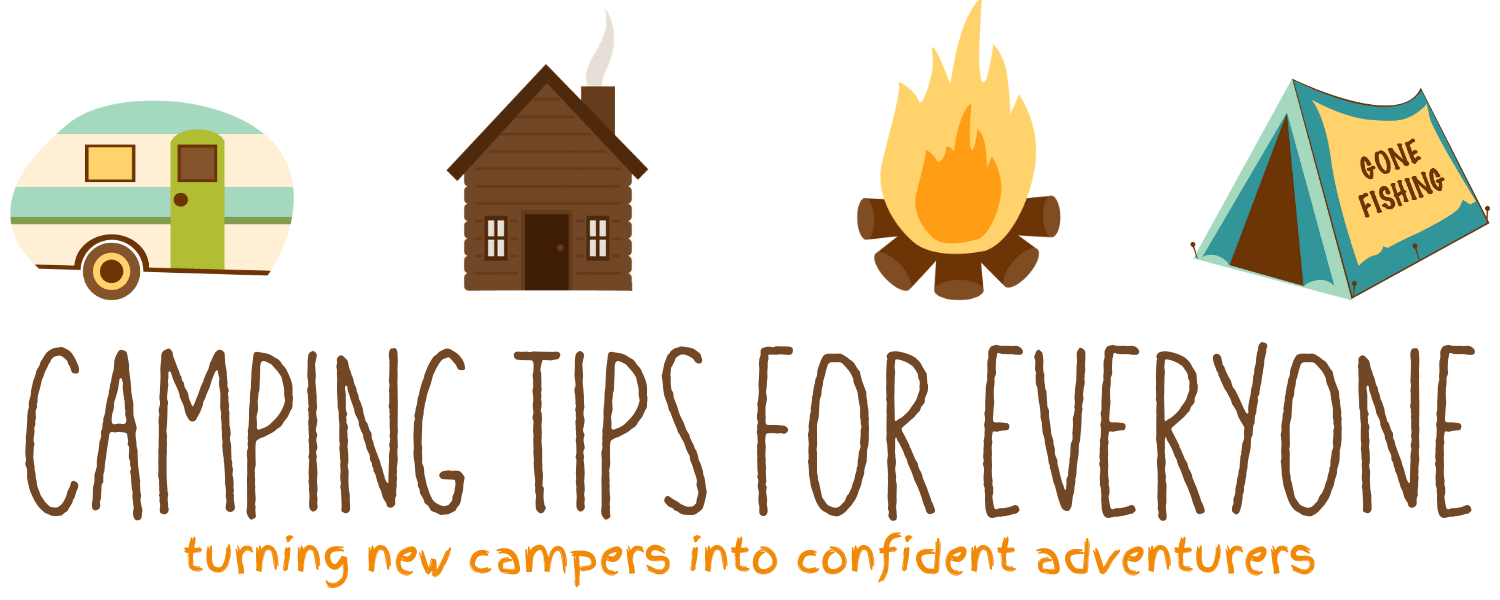


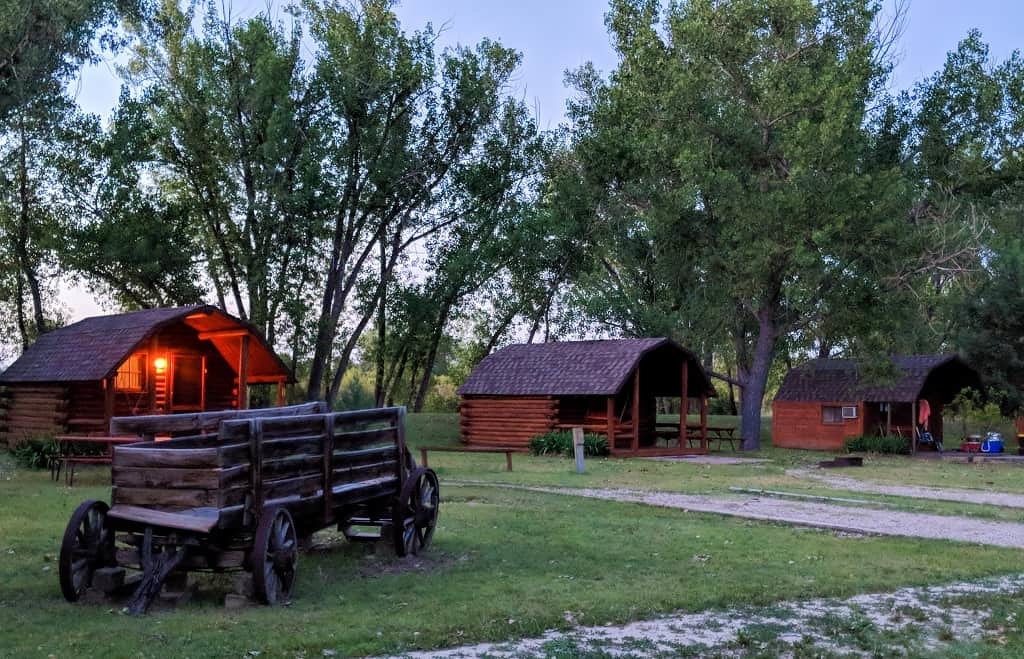
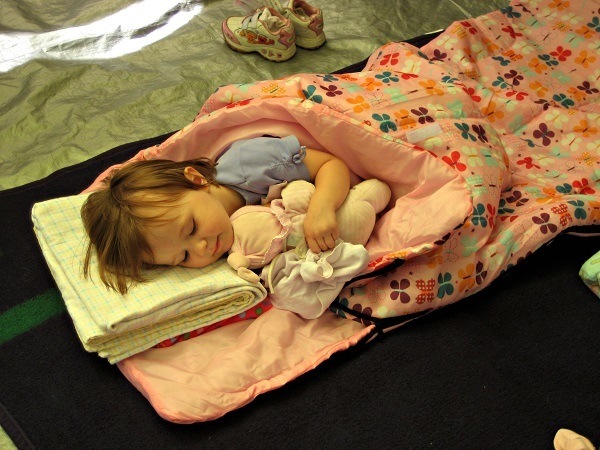
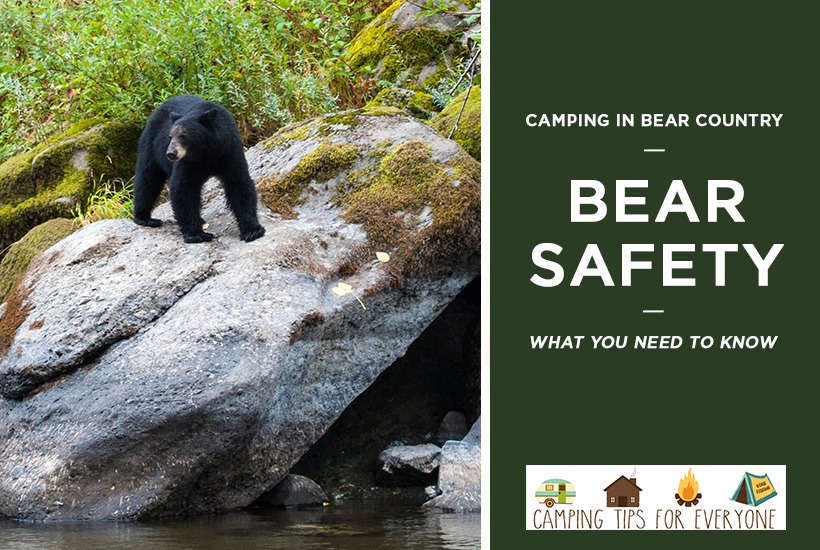
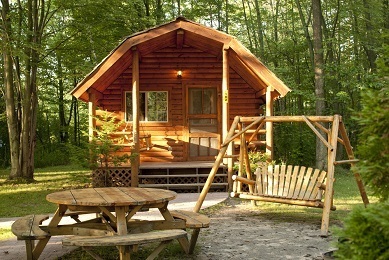

Thank you for the useful tips! I’m an avid camper, I’ll be taking my kids this time to camp in woods. Hopefully, it’ll be a fun experience for them